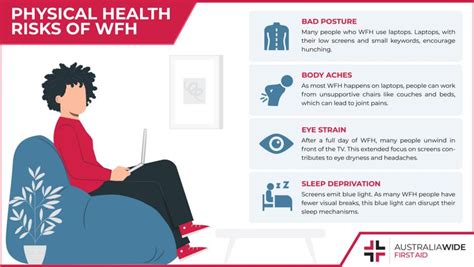Intro
Discover how morbid obesity affects health, increasing risks of diabetes, heart disease, and stroke, while impacting mental wellbeing, mobility, and overall quality of life, through 5 significant ways, including related comorbidities and complications.
Morbid obesity is a serious health condition that affects millions of people worldwide. It is defined as having a body mass index (BMI) of 40 or higher, or being more than 100 pounds overweight. This condition can have a significant impact on a person's overall health, increasing the risk of developing various chronic diseases and reducing life expectancy. In this article, we will explore the ways in which morbid obesity impacts health, and discuss the importance of seeking medical attention to address this condition.
The health risks associated with morbid obesity are numerous and can be life-threatening. From an increased risk of heart disease and stroke to a higher likelihood of developing type 2 diabetes and certain types of cancer, the consequences of morbid obesity can be severe. Furthermore, morbid obesity can also affect a person's mental health, leading to depression, anxiety, and low self-esteem. It is essential to understand the complexities of morbid obesity and its impact on health to develop effective treatment plans and prevention strategies.
Morbid obesity is a complex condition that requires a comprehensive approach to management. It is not just a matter of personal choice or willpower, but rather a condition that is influenced by a combination of genetic, environmental, and lifestyle factors. Understanding the causes of morbid obesity and its impact on health is crucial for developing effective treatment plans and prevention strategies. By recognizing the risks associated with morbid obesity and seeking medical attention, individuals can take the first step towards improving their health and reducing their risk of developing chronic diseases.
Introduction to Morbid Obesity

Definition and Causes of Morbid Obesity
Morbid obesity is defined as having a BMI of 40 or higher, or being more than 100 pounds overweight. The causes of morbid obesity are complex and multifaceted, involving a combination of genetic, environmental, and lifestyle factors. Some of the common causes of morbid obesity include poor diet, lack of physical activity, and certain medical conditions such as hypothyroidism and Cushing's syndrome. Understanding the causes of morbid obesity is crucial for developing effective treatment plans and prevention strategies.Physical Health Risks of Morbid Obesity

Heart Disease and Stroke
Morbid obesity increases the risk of heart disease and stroke by increasing blood pressure, cholesterol levels, and blood sugar levels. This can lead to the development of atherosclerosis, a condition in which the arteries become narrowed and hardened, reducing blood flow to the heart and brain. Heart disease and stroke are leading causes of death worldwide, making it essential to address morbid obesity to reduce the risk of these conditions.Mental Health Risks of Morbid Obesity

Depression and Anxiety
Morbid obesity can lead to depression and anxiety by reducing self-esteem and body image, and increasing social isolation. Depression and anxiety are common mental health conditions that can have a significant impact on daily life, making it essential to address morbid obesity to reduce the risk of these conditions.Treatment Options for Morbid Obesity

Lifestyle Modifications
Lifestyle modifications, such as diet and exercise, are essential for managing morbid obesity. A healthy diet that is low in calories and high in nutrients, combined with regular physical activity, can help individuals with morbid obesity to lose weight and reduce their risk of developing chronic diseases. Some tips for lifestyle modifications include: * Eating a healthy diet that is low in calories and high in nutrients * Engaging in regular physical activity, such as walking or swimming * Getting enough sleep, aiming for 7-8 hours per night * Reducing stress, through techniques such as meditation or yogaPrevention Strategies for Morbid Obesity

Importance of Early Intervention
Early intervention is essential for preventing morbid obesity. By addressing the causes and risk factors of morbid obesity early on, individuals can reduce their risk of developing this condition. Early intervention can include lifestyle modifications, such as diet and exercise, as well as medication and surgery if necessary.What is morbid obesity?
+Morbid obesity is a serious health condition that is defined as having a BMI of 40 or higher, or being more than 100 pounds overweight.
What are the physical health risks of morbid obesity?
+The physical health risks of morbid obesity include heart disease, stroke, type 2 diabetes, and certain types of cancer.
How can morbid obesity be treated?
+Morbid obesity can be treated through lifestyle modifications, medication, and surgery.
Can morbid obesity be prevented?
+Yes, morbid obesity can be prevented through lifestyle modifications, such as eating a healthy diet and engaging in regular physical activity.
What is the importance of early intervention in morbid obesity?
+Early intervention is essential for preventing morbid obesity and reducing the risk of developing chronic diseases.
In conclusion, morbid obesity is a serious health condition that requires immediate attention. By understanding the causes, symptoms, and treatment options for morbid obesity, individuals can take the first step towards improving their health and reducing their risk of developing chronic diseases. It is essential to seek medical attention to address morbid obesity and to develop effective prevention and treatment strategies. We encourage readers to share this article with others and to take action to address morbid obesity in their own lives. By working together, we can reduce the prevalence of morbid obesity and improve the health and wellbeing of individuals and communities worldwide.
